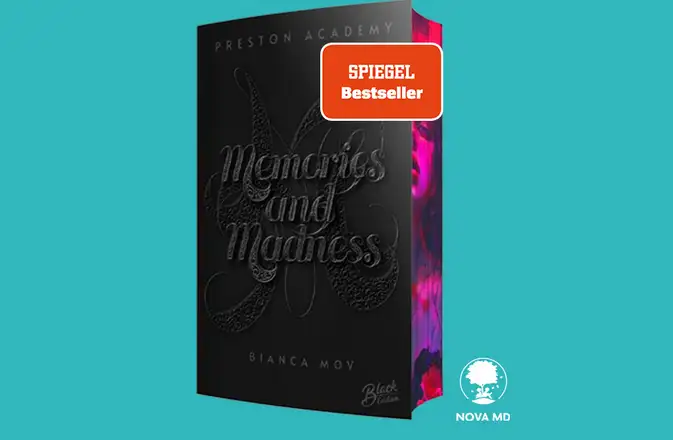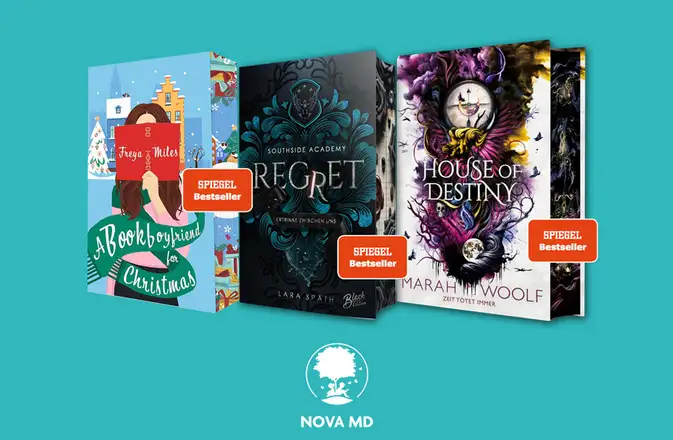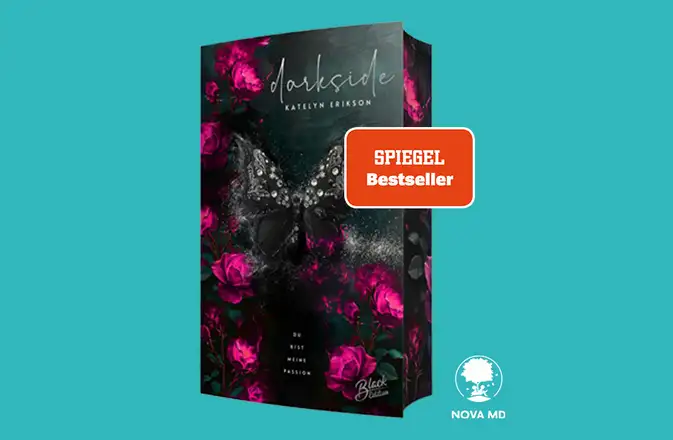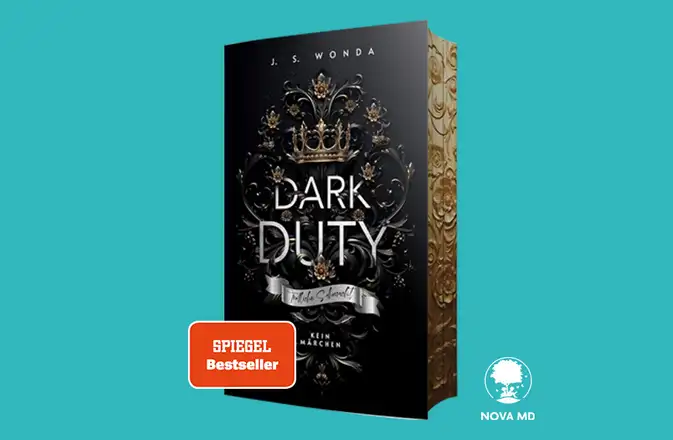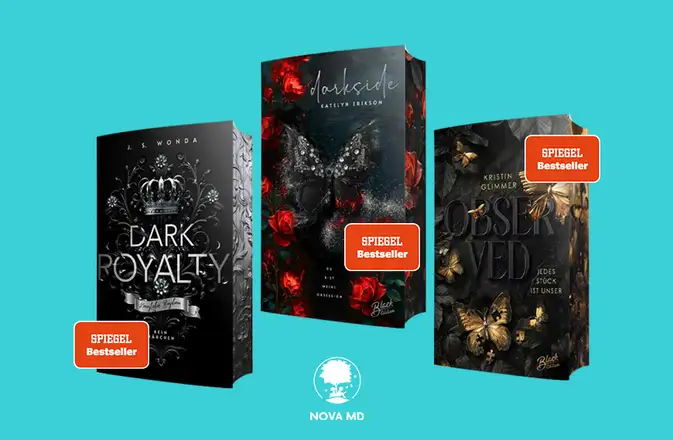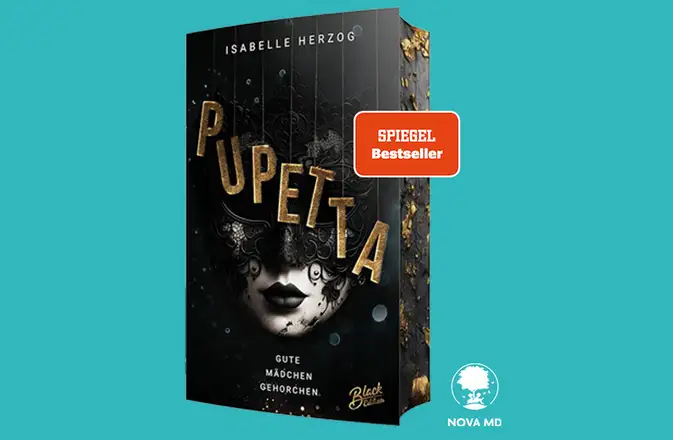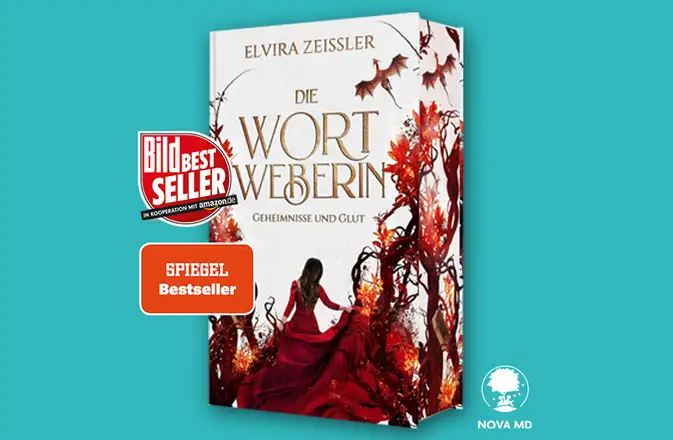Why is it important to assign books to the right genre?
The correct assignment of a book to a genre is crucial for several reasons:
Readers' expectations of a book genre
Readers often specifically look for books in their preferred genre. An incorrectly categorized book can therefore be problematic. It may be overlooked or disappoint those expecting a completely different work. An inappropriate genre classification of your book can therefore also result in negative reviews.
Targeted marketing
A clearly defined genre makes it easier for you to market your book. You can better address your target group and make targeted contacts, for example with bloggers or reviewers who specialize in your genre.
Better sales opportunities
In general, it can be observed that books with a clear genre classification are sold more successfully. Works that span several genres are often perceived as niche products and reach a smaller audience.
If you are still in the writing process, it is worth thinking about the right genre classification from the outset. This way, you can meet the expectations of your readers and plan the marketing of your book in a targeted manner.
How do you choose the right book genre?
But how do you find the right genre for your book? The main factor is the plot - the storyline of your book. But elements such as the temporal context in which your story takes place can also influence the genre.
In addition to the main genres, such as "crime novel", there are also many sub-genres. For example, a crime novel can also be classified as a regional crime story if the plot is set in a specific region.
There are, of course, overlaps between genres. One example is the historical romance novel: this is basically a historical novel, but the focus is on a love story and not on the era itself.
Overview of popular book genres
Below you will find the most popular book genres as a list with examples of sub-genres that can help you categorize your book.
Non-fiction" section
Non-fiction covers a wide range of non-fictional works that deal with real-life topics from various fields. From scientific treatises and practical guides to biographies and travel guides, non-fiction offers a well-founded examination of facts, knowledge and experiences.
Non-fiction
A classic non-fiction book deals with a non-fictional topic in which the author usually represents a specific opinion or perspective. A current event is often the starting point for the topic, which makes the discussion of the respective issue particularly relevant.
Guidebooks
Guidebooks present a topic in an understandable and practical way and impart knowledge. They are aimed at a target group that wants to learn how to implement something or improve in a certain area.
- Cookbook: A cookbook is a collection of recipes, often on a common theme such as "vegan cooking" or "baking".
- Travel guides: Travel guides offer tips and information on a specific region or topic, for example "Discover Scotland", "Mountain tours in the Alps" or "Sustainable travel in Asia".
- Life advice: These books provide advice on how readers can deal with certain situations or challenges and develop personally, for example in the area of self-love.
Reference book
Reference books explain non-fictional topics in an objective and well-founded manner. They are aimed at a specialist audience and prepare the content scientifically or professionally.
- Textbook / schoolbook: Textbooks and schoolbooks are aimed at people in school, training or further education. They convey structured knowledge and serve as a basis for learning in a specific area.
- Handbook: A handbook is a reference work that systematically and clearly presents the subject matter of a field of knowledge.
Biography
Biographies describe the lives of real people and are based on true events.
- Autobiography: In an autobiography, the author describes his or her own life.
- Memoirs: Memoirs contain personal recollections of important personalities in world history. The focus is often on social and political circumstances.
Fiction" section
Fiction includes all fictional works that belong to creative and invented literature. It includes novels, short stories and short stories that take place in an imaginary world and stimulate the reader's imagination.
Fiction is characterized by endless possibilities for transforming reality and creating new, fascinating worlds.
Fantasy
Fantasy stories are often set in a strange world that is very different from our own. In these worlds, things are possible that do not exist in reality, such as magical abilities or other supernatural phenomena. The stories often include fantastic characters or creatures that go beyond the boundaries of reality. The protagonist finds himself or herself in a conflict in which he or she fights for his or her own life or the lives of others.
- Dark fantasy: A mixture of fantasy and horror in which dark, threatening elements characterize the fantastic worlds.
- High Fantasy: The action takes place in a separate, self-contained world whose story takes center stage and which is threatened by a great danger.
- Urban fantasy: The story unfolds in the real world, with fantastic elements being integrated into modern everyday life.
Science fiction
Science fiction stories are often set in the future, in a world that has been greatly transformed by technological and social changes. These changes take into account the chemical and physical realities of our real world, while transposing them into a speculative future. In such stories, technology is usually more advanced, creating new opportunities and challenges for the characters.
- Utopias & Dystopias: The plot revolves around a fictional society that presents either a positive vision of the future as a utopia or a negative development as a dystopia.
- Time travel: Characters travel between different time planes, linking past, present and future events.
- Artificial intelligence: The focus is on a human-like being, a computer or software that possesses artificial intelligence and blurs the boundaries between man and machine.
Crime thriller
In a crime thriller , the plot centers on a crime that needs to be solved. The protagonist is often an investigator who is dedicated to solving the crime. There are usually several mysteries that need to be solved in the course of the story, such as the questions: Who was the perpetrator? What was the motive? And how did the crime happen in the first place?
- Regional crime: The setting is a real place - be it a village, a town, an island or a region - which plays a central role in the plot and is integrated into the story in detail.
- Cosy Crime: The suspense is created by solving the mystery: who, how and why a crime was committed. Brutal language and violent scenes are usually avoided.
- Crime noir: Mental abysses and dark worlds are in the foreground. Even if the crime is solved, the story often ends without a "happy ending".
Thriller
In a thriller, a life-threatening development is at the center of the plot, driving the tension and drama. The protagonist fights against this threat either alone or with others in order to avert disaster. Often, it is not only the main character himself who is in danger, but also his family, which adds to the drama of the situation.
- Action thriller: The plot is characterized by intense fights and chases that drive the tension forward and keep the plot moving at a fast pace.
- Psychological thriller: The suspense is created by subtle hints and the addressing of deep primal fears, whereby much is often left to the reader's imagination.
- Eco-thriller: A life-threatening development based on a catastrophe - be it a natural disaster or a man-made environmental crisis.
Romance novel
In romance novels , love and the relationship between the protagonists are at the center of the plot. This relationship is often associated with difficulties or an obstacle that must be overcome. Often, one or more protagonists struggle to build a stable and fulfilling relationship or connection, and the challenges they face in doing so add to the emotional depth of the story.
- Erotic novels: Sexuality is portrayed openly and in detail and plays a central role in the plot.
- Paranormal Romance: One or more main characters possess supernatural abilities, which usually tend towards science fiction and do not originate from magic, fairy tales or legends.
- Gay Romance: The love story revolves around same-sex partners.
Historical novel
In a historical novel, the plot takes place in a specific historical period, whereby the story is set within the framework of historical facts, but these are often embellished and dramatized. There is no claim to scientific accuracy, so the events are interpreted artistically. In such novels, historical personalities and fictional characters can appear side by side, giving the story a special tension and depth.
- Historical romance: A romance novel set in the past that combines historical events or settings with a romantic narrative.
- Historical crime thriller : A crime thriller set in the past, which can involve both real and fictional criminal cases.
- Historical thriller: A thriller set in the past that builds suspense through historical contexts and dramatic twists.
Social novel
The social novel focuses on human social life and its interactions with nature and society. The focus is less on a single main character and more on the events and social upheavals that shape people and their social structures. These novels offer a deep insight into the social, political and cultural challenges of a particular time or society.
Development novel
In a coming-of-age novel, the protagonist deals intensively with himself or herself and his or her environment. The plot focuses on the character's mental and emotional development and their confrontation with personal challenges and changes.
- Educational novel: The novel describes the upbringing of a person, with the focus on the educational measures and their effects.
- Bildungsroman: The main character is usually a teenager or young adult, with the novel focusing on their personal and intellectual development.
Family novel
In a family novel, the main characters are part of a family, often spanning several generations. The plot deals with the conflicts and challenges that arise within this family, highlighting the complex relationships between family members.
- Generational novel: The story of several main characters belonging to at least three different generations of a family is told, focusing on the experiences and relationships of each generation.
Travel novel
In a travel novel, the main character or several main characters are on a journey. The plot is usually told chronologically and focuses on the experiences and developments that take place during the journey.
Horror
In the horror genre, terrifying events are at the center of the plot, with the focus on effects such as fear and tension. The content is portrayed realistically, while supernatural elements are often part of the plot.
- Splatter: Intense horror characterized by excessive bloodshed and extreme violence.
- Paranormal horror : The horror elements consist of supernatural beings such as ghosts, witches, wizards, the devil or demons.
- Monsters: Horrifying creatures are part of the known world and cause fear and terror.
The correct genre classification is a decisive factor for the success of a book. It helps to appeal to the right readers and to target the marketing. So think about genre classification early on to position your book optimally.
Find out how you can also incorporate the genre into the design of the book cover!


